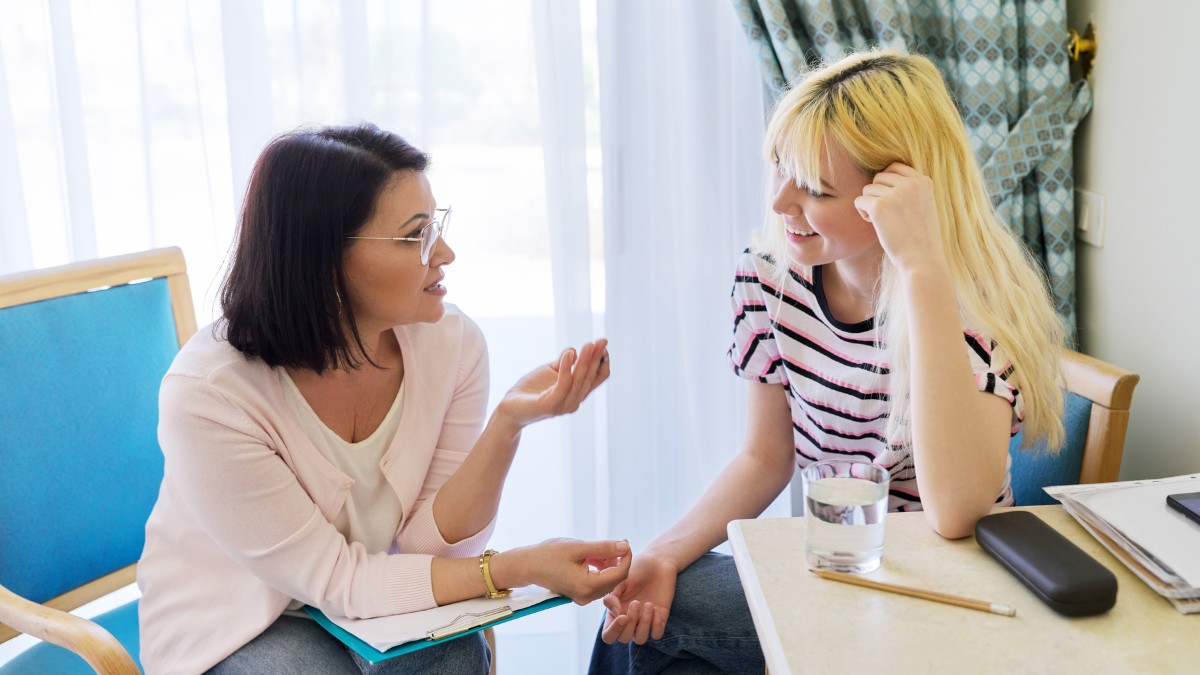ABA Therapy Programs in North Carolina for Teens
ABA Therapy Programs in North Carolina help teens build life skills, improve behavior, and gain independence through personalized, evidence-based support.

ABA Therapy Programs in North Carolina for Teens
Key Points:
- ABA therapy programs in North Carolina help teens build real-life skills like emotional regulation, social interaction, and executive functioning to support success in school, relationships, and daily routines.
- Effective programs are tailored to adolescents' unique developmental needs, using natural environment teaching and functional goal setting to promote independence and confidence.
- Parents should look for teen-specific ABA programs that offer individualized assessments, involve family in the process, and are led by credentialed behavior analysts with a clear system for tracking progress.
As parents, watching your teen struggle with communication, social interactions, or behavioral outbursts can be deeply overwhelming—especially when typical parenting strategies aren’t enough. That’s where ABA therapy programs in North Carolina come into the picture.
Applied Behavior Analysis (ABA) therapy is a research-backed method that breaks down complex skills into smaller, teachable steps. When delivered through a teen-focused lens, ABA becomes a powerful tool for helping adolescents navigate school, relationships, and daily life with more confidence and clarity.
Whether your child has a formal autism diagnosis or simply struggles with executive functioning or emotional regulation, this article will guide you through how ABA therapy can help—and what to look for in a quality teen-centered program in North Carolina.
Understanding the Needs of Teens in ABA Programs
Teenagers are not just older children—they're navigating a whirlwind of physical, emotional, and cognitive changes. This means ABA therapy for teens must be flexible and developmentally appropriate.
During adolescence, issues like peer acceptance, identity formation, and independence become increasingly important. At the same time, challenges such as rigid thinking, social anxiety, sensory overload, or impulsive behavior can get in the way of day-to-day success.
ABA programs that specialize in supporting teens often focus on:
- Enhancing social understanding and relationship-building
- Teaching self-advocacy and coping strategies
- Supporting transitions to adulthood, including vocational skills and executive functioning
- Managing increasing behavioral expectations at home and school
Effective therapy for teens must feel respectful and collaborative—never condescending. Providers like Supportive Care ABA ensure that teens are active participants in their own progress, not passive recipients of reward charts or behavior drills.
What Makes ABA Therapy Effective for Teens?
ABA isn’t a one-size-fits-all approach. When applied well, it can meet your teenager right where they are—whether they need help regulating emotions, learning independent living skills, or navigating high school environments.
Here are some core components that make ABA therapy effective for adolescents:
1. Goal-Oriented Skill Development
ABA for teens focuses heavily on functional goals—things that actually improve their lives. These might include:
- Starting and maintaining conversations
- Managing emotional responses to stress or transitions
- Using public transportation
- Applying for a part-time job
- Handling peer conflict or bullying
Each goal is broken into small, teachable steps, and therapists track progress continuously to make sure strategies are actually working.
2. Emphasis on Executive Functioning
Executive functioning refers to a set of mental skills that include working memory, flexible thinking, and self-control. Teens with autism or ADHD often struggle in this area.
ABA therapy programs can help teens:
- Break down tasks into manageable parts
- Create and follow schedules or planners
- Develop problem-solving strategies
- Learn to pause and think before reacting
These skills directly translate to success in high school, college prep, and even daily family routines.
3. Natural Environment Teaching (NET)
Instead of always working at a table, many teen-focused ABA programs integrate natural environment teaching—meaning therapy happens in real-life settings.
This could be:
- Practicing job interview questions at a local café
- Role-playing peer interactions at the park
- Working on budgeting skills during a grocery store visit
Learning in context makes new behaviors more likely to stick.

4 Core Benefits of Teen-Centered ABA Programs in North Carolina
For many families in North Carolina, finding the right ABA therapy program for a teen can feel like a turning point. When delivered with sensitivity and intention, ABA can reduce stress for the whole household and increase your teen’s long-term independence.
Here are some specific ways ABA programs benefit teens:
Skill Generalization
Teens don’t just learn a new behavior—they learn how to apply it across different settings. For example, a teen who learns to ask for help at home is also coached to do it in a school or work environment.
Strengthened Emotional Regulation
Through ABA, teens can learn to recognize signs of emotional dysregulation and use coping tools that work for them—whether it’s deep breathing, journaling, or asking for a break.
Increased Confidence
As they master communication and self-advocacy skills, teens often show improved self-esteem and willingness to try new things, even if they’ve struggled socially in the past.
Support for Daily Life Skills
ABA isn’t just about behavior—it’s about functional independence. Programs often target skills like hygiene, money management, mealtime routines, and even digital safety.

What to Look for in a Quality Teen ABA Program
If you’re researching ABA therapy programs in North Carolina, don’t settle for generic answers. Ask detailed questions and look for providers who genuinely understand teens and their developmental needs.
Here’s a breakdown of what to look for:
1. Individualized Assessments
Every teen has a different learning style, personality, and set of strengths. Make sure the program conducts thorough initial assessments—not just IQ scores or diagnosis sheets, but real-time behavioral observations and interviews with the family.
2. Age-Appropriate Programming
Teens shouldn’t be grouped into therapy models designed for younger children. Look for providers who offer teen-specific services, including peer groups, community-based interventions, or transition planning.
3. Family Involvement
While teens are more independent, they still need family support. The best programs involve parents or caregivers in setting goals, reviewing progress, and maintaining consistency at home.
4. Credentialed Behavior Analysts
Board Certified Behavior Analysts (BCBAs) oversee quality ABA therapy. Ask who will be managing your teen’s program and what training the team has in adolescent development.
5. Transparent Progress Monitoring
Make sure the provider can show you how progress is measured. Data should be shared in a way that makes sense to you—not just charts, but practical updates about your teen’s communication, independence, and emotional regulation.

Common Therapy Goals for Teens in ABA Programs
Every teen has unique challenges, but certain therapy goals come up again and again. When programs are built around functional life skills, teens are better prepared for what comes next—whether that’s college, vocational training, or independent living.
Here are common areas of focus:
Social Interaction
- Reading social cues
- Taking turns in conversation
- Understanding sarcasm or indirect language
- Maintaining appropriate personal boundaries
Communication Skills
- Initiating conversation
- Clarifying when misunderstood
- Texting/emailing with appropriate tone and grammar
- Practicing assertive communication vs. passive or aggressive styles
Emotional Self-Regulation
- Identifying emotional triggers
- Practicing coping techniques before escalation
- Learning how to de-escalate conflict or frustration
- Role-playing emotionally intense situations with therapist support
Daily Living Skills
- Waking up independently
- Preparing simple meals
- Managing medications or hygiene
- Budgeting allowance or earnings
Academic & Vocational Readiness
- Following multi-step instructions
- Practicing job interview skills
- Staying organized with homework or part-time job responsibilities
- Understanding workplace etiquette
These goals aren’t taught in isolation—they’re practiced, revisited, and refined until they become second nature.
How Supportive Care ABA Can Help
If you’re feeling overwhelmed, you’re not alone. Supporting a teenager with autism or behavior challenges can stretch a parent’s patience, energy, and emotional bandwidth.
Supportive Care ABA offers personalized ABA therapy that respects your teen’s voice and empowers your family. We understand that adolescence is full of transitions—and our role is to help your teen build skills that matter right now and later on.
Whether your child needs help navigating high school, preparing for adulthood, or just figuring out how to handle life’s day-to-day stressors, our team creates compassionate, practical interventions rooted in behavioral science.
We offer ABA therapy in North Carolina, Georgia, Oklahoma, Virginia, and Indiana, with programs tailored to each individual’s strengths, goals, and pace.
Contact us today to learn how we can support your teen’s journey.














